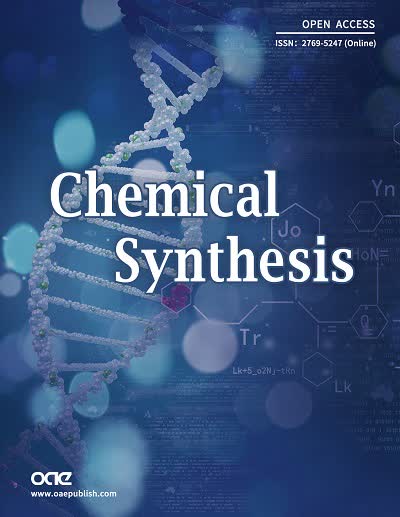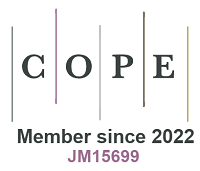
Topic: Chemical Synthesis and Modulation of Advanced Materials for Energy Conversion and Storage Applications
Guest Editor(s)
Special Issue Introduction
The growing demand for sustainable energy solutions has made the development of advanced materials for energy storage and conversion critical to addressing future energy challenges. Chemical synthesis is pivotal in developing high-performance materials that improve the efficiency, capacity, and lifespan of energy storage systems, including batteries, supercapacitors, and fuel cells. Additionally, the precise modulation of material properties is essential for efficient energy conversion in devices such as solar cells and catalytic processes for hydrogen production, advancing clean energy pathways.
This Special Issue focuses on cutting-edge chemical synthesis techniques that target energy storage and conversion materials. A key highlight is the integration of advanced characterization methods, including in situ and operando techniques, which are instrumental in monitoring material synthesis and development, especially for structurally well-defined systems. These advanced techniques provide vital insights into material behavior throughout synthesis and operation, facilitating the precise modulation of material properties for optimized performance.
We invite contributions that explore innovative synthesis strategies for material design, functionalization, and fabrication to enhance energy system performance. Studies addressing challenges in scaling up material production for practical applications, as well as integrating multifunctional materials into devices, are also welcome. Furthermore, submissions discussing the modulation of material structures to achieve superior energy storage and conversion capabilities are encouraged.
Looking ahead, advancements in this field will rely on interdisciplinary approaches that integrate nanotechnology, electrochemistry, materials science, and modern characterization techniques. Emerging trends include the chemical synthesis of organic-inorganic hybrids, two-dimensional materials, and nanostructures with tailored properties for higher energy densities and faster charge/discharge rates. The integration of machine learning and artificial intelligence into material design and optimization represents a promising direction to accelerate discovery and application.
This Special Issue will accept original research articles, review articles, communications, and highlights. Topics of interest include, but are not limited to:
● Chemical synthesis and modulation of novel battery materials (e.g., lithium-ion, solid-state, and flow batteries);
● Design and chemical modulation of supercapacitor materials;
● Catalytic materials for hydrogen production and fuel cells;
● Photocatalysts for solar energy conversion;
● Synthesis of hybrid and composite materials for multifunctional energy systems;
● Advanced characterization techniques in chemical synthesis for energy materials;
● Scaling up and commercializing new energy storage and conversion materials.
This Special Issue focuses on cutting-edge chemical synthesis techniques that target energy storage and conversion materials. A key highlight is the integration of advanced characterization methods, including in situ and operando techniques, which are instrumental in monitoring material synthesis and development, especially for structurally well-defined systems. These advanced techniques provide vital insights into material behavior throughout synthesis and operation, facilitating the precise modulation of material properties for optimized performance.
We invite contributions that explore innovative synthesis strategies for material design, functionalization, and fabrication to enhance energy system performance. Studies addressing challenges in scaling up material production for practical applications, as well as integrating multifunctional materials into devices, are also welcome. Furthermore, submissions discussing the modulation of material structures to achieve superior energy storage and conversion capabilities are encouraged.
Looking ahead, advancements in this field will rely on interdisciplinary approaches that integrate nanotechnology, electrochemistry, materials science, and modern characterization techniques. Emerging trends include the chemical synthesis of organic-inorganic hybrids, two-dimensional materials, and nanostructures with tailored properties for higher energy densities and faster charge/discharge rates. The integration of machine learning and artificial intelligence into material design and optimization represents a promising direction to accelerate discovery and application.
This Special Issue will accept original research articles, review articles, communications, and highlights. Topics of interest include, but are not limited to:
● Chemical synthesis and modulation of novel battery materials (e.g., lithium-ion, solid-state, and flow batteries);
● Design and chemical modulation of supercapacitor materials;
● Catalytic materials for hydrogen production and fuel cells;
● Photocatalysts for solar energy conversion;
● Synthesis of hybrid and composite materials for multifunctional energy systems;
● Advanced characterization techniques in chemical synthesis for energy materials;
● Scaling up and commercializing new energy storage and conversion materials.
Keywords
Chemical synthesis, energy storage materials, modulation, advanced characterization techniques, batteries and supercapacitors, catalysts for energy conversion, hydrogen production, photocatalysis, nanomaterials for energy, multifunctional energy materials, 2D materials, organic-inorganic hybrids
Submission Deadline
20 Apr 2025
Submission Information
For Author Instructions, please refer to https://www.oaepublish.com/cs/author_instructions
For Online Submission, please login at https://oaemesas.com/login?JournalId=cs&IssueId=cs241025
Deadline for submission: 20 Apr 2025
Contacts: Serein Hu, Assistant Editor, editorialoffice@chesynjournal.com








